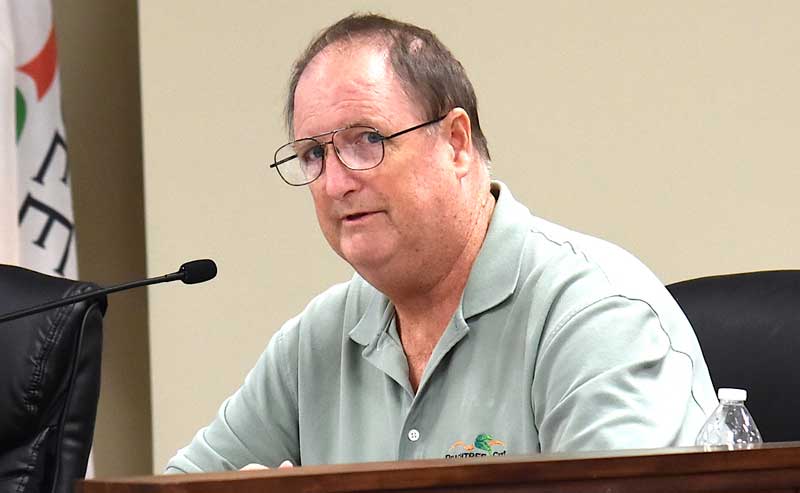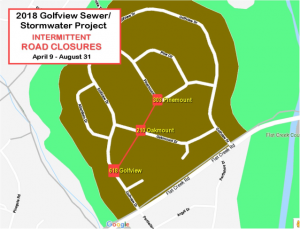Former Peachtree City Councilman Eric Imker is the most recent person to weigh in on the Peachtree City Water and Sewerage Authority (WASA) after its board on April 18 issued a letter maintaining the authority’s legal ability to function as an autonomous body, particularly its power to extend sewer service past the city limits into the unincorporated county.
Imker in a letter to the editor sent to The Citizen said WASA should be disbanded and its operation brought under city control.
“The Water and Sewer Authority (WASA) recently decided, unilaterally, that it was not responsible to the City Council or to the citizens of Peachtree City,” said Imker. “WASA must be disbanded and their operation brought under Peachtree City’s Department of Public Works.”
Noting a portion of his time on the council, Imker said questions began to surface when he served as the council representative to WASA.
“Having attended several WASA meetings, questions began to arise. I heard about an ‘arrangement’ whereby WASA was not allowed to extend sewer service beyond PTC limits without City Council approval. My next question was obviously, ‘Where is this written?’ I was told, ‘the bond.’ So of course I got a copy of it,” said Imker. “The bond in effect at the time was the 2005 WASA bond. There it was on page D-27, ‘Extension of System Outside Corporate Limits of City.’ It’s one simple sentence.”
Imker said it was six years ago that he began urging the council to appoint WASA board members who would vote, along with the City Council, to disband the authority.
To the point, Imker maintains that disbanding WASA could save rate-payers approximately $1 million per year and have rates lowered.
In total, Imker said disbanding the authority would save $500,000-600,000 in salaries and another $300,000-400,000 by sharing maintenance costs.
“Savings could be achieved by eliminating the duplication of office personnel,” he said. ”WASA has several office positions, identical to those on the city staff, which could be combined. WASA uses the city’s GIS (Geographic Information System) maps, but hires its own employee to use it.”
Imker said he previously noted that “The economy of scale if Public Works and WASA were to share equipment and personnel was pointed out. No longer would WASA be required to buy expensive equipment needed only occasionally. Additionally, maintenance using existing public works personnel would become more efficient.
“The city’s stormwater operation includes equipment similar to WASA’s for pipe inspections, digging trenches and replacing pipes. Our public works department maintains all this equipment. Think of how effective it would be to include the sewer equipment as part of the city’s maintenance program instead of WASA having its own separate and expensive maintenance operation. This makes perfect sense to me.”
Imker, who has announced his intention to run for mayor later this year, turned his comments to the City Council.
“We need a City Council who has the guts to do the right thing. This means appointing WASA Board Members who will vote with City Council to disband WASA and bring it under our city’s Public Works. Only then will the citizens of Peachtree City have someone to hold accountable (i.e., City Council) and have a voice in their sewer bills,” Imker said.
Peachtree City’s WASA charges some of the highest sewer rates in Georgia, according to data from the Environmental Finance Center at the University of North Carolina, Chapel Hill, and the Georgia Environmental Finance Authority.
The data show that Peachtree City residents pay monthly sewer bills at the extreme high end of rates — the top 10 percent in Georgia — for systems of comparable size and numbers of customers. It’s also among the most expensive when compared to all systems of all sizes in the state.
The data also show WASA’s operating revenue for the last year available on this report (2014) was $9.36 million, while its operating expense was $3.29 million.
The report did not say how much the system pays on its bond debt.












Leave a Comment
You must be logged in to post a comment.